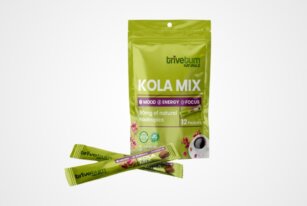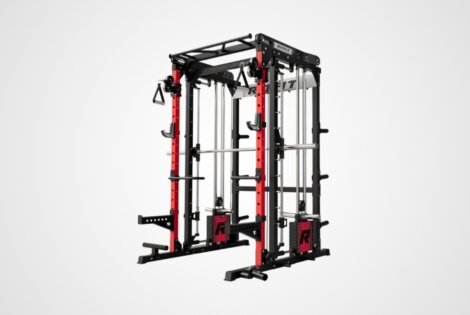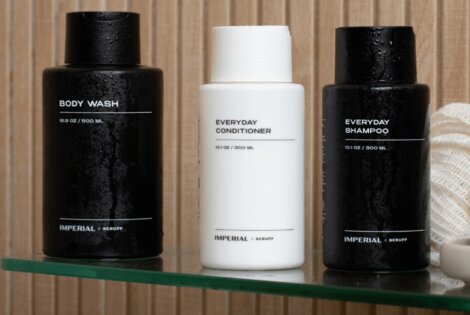Contents
It’s not exactly big news that a lot of men take more than a passing interest in their testosterone levels. We regularly see in the news that testosterone levels are dropping across the west and a lot of us are well aware of the health implications, and for a lot of us the vanity implications of that fact.
For men having low testosterone can be completely devastating, leading to weight gain, mood swings, poor sleep, muscle loss, irritability, brain fog and a host of other issues. And with weight gain and stress causing further drops in testosterone production, be part of a downwards spiral.
Then of course beyond the base line of health, there’s the vanity issue, it’s not as if it’s a small portion of us that want to be leaner with more muscle mass. And testosterone plays a huge impact on this as is common knowledge.
And to make matters worse, the fact that men’s natural testosterone levels drop by around 1% every year after they turn 30 [1] a whole host of these issues simply get put down to aging as the change can be relatively slow.
It can also be hugely exacerbated by vitamin deficiencies, zinc [2] and vitamin d [3] being two of the most common, and when it comes to vitamin d, nearly half the adult population of the USA is deficient.
And that leads us on to the market of testosterone boosters, supplements designed to help raise testosterone levels without the need for medical intervention. The question of course is, do testosterone boosters actually work?
Or perhaps it should be, is there any reason take a testosterone booster instead of a vitamin pill? And if there is a reason what ingredients belong in good testosterone boosters?
Why Wouldn’t I Just Take A Multivitamin To Boost Testosterone?
Well that’s a good question, odds are if you’re like most adults in the US it probably would have a beneficial impact on your health overall, never mind just your testosterone. Of course, if you’re eating a perfectly balanced diet and exercising, odds are you won’t need to, but seeing as we have an ongoing obesity crisis, clearly a lot of us aren’t.
The reality is, that there are three types of testosterone booster on the market, one that is very much a testosterone focused multivitamin (a lot of multivitamins don’t actually hit complete daily recommended intakes), these tend to be relatively cheap and priced similarly to a multivitamin. A well known example being Weider Prime.
Then there’s the herbal and more loosely supported products, which can be split into two types of testosterone booster. Those that actually contain ingredients that have had human trials showing increased testosterone, and those that are complete snake oil.
And unfortunately, when tested about three quarters of the products on the market fall into the snake oil camp and when a large scale study was done on commercially available products 5% actually lowered testosterone [4], 50% did nothing, and only 30% actually worked with the rest being indeterminant. All of the products however seemed to be backed by studies, so what was the difference between them? Quite simply, it was the difference between whether the ingredients were backed by human studies or animal ones.
The positive note however, is that, this does mean that some actually work, not as effectively as larger scale lifestyle changes or medical intervention, however, the good news is that some plant compounds can raise testosterone beyond a simple vitamin pill.
So, does this mean you can actually biohack your testosterone levels? Well sort of. But, you do need to make sure you do your research and buy a product that contains the relatively few ingredients that actually have any effect on humans.
Why You Need Vitamins For Testosterone
Most deficiencies can impact testosterone production either directly or through a knock on effect, for example a raise in cortisol (the stress hormone) decreases testosterone levels, the same applies for poor sleep, and deficiencies can cause both of these issues. That said some are directly related to testicular function or estrogen conversion.
Vitamin D3 – as we mentioned earlier most of the US population is deficient in vitamin D, this isn’t a surprising fact with EASNA (Employee Assistance Society of North America) estimating that more than 70% of office workers in North America don’t have sufficient access to natural light. When given a D3 supplement men who were deficient showed a raise of 46% in testosterone levels. Which
Zinc – It was found that men with low testosterone and zinc deficiency made full recoveries to normal levels when supplemented with zinc.
Magnesium – Studies have shown that magnesium supplements lead to moderate increases in testosterone in both trained and untrained men. [5]
Amino Acids And Testosterone
There’s a few Amino Acids that have been shown to help, but, only a few and they’re by no means the most effective, the one that gets the most attention is DAA (D Aspartic Acid). The reason for this is largely that it has noted effects that help increase muscle growth as well as mild testosterone booster effects. And as a huge part of the market for testosterone boosting supplements is from men looking to have improved performance in the gym.
Do Herbal Compounds Actually Boost Testosterone?
Some do, but not many, and the few testosterone boosting plant extracts that are well backed by studies can be broken down into the following short list:
- Ashwagandha
- Fenugreek
- Panax Ginseng (NOT American Ginseng)
Maca is also often included in these supplements; however, it doesn’t really do much for testosterone, it has however been shown to improve blood flow to certain parts of the male anatomy, and as a lot of men purchase testosterone boosters for this issue, it makes an appearance in many testosterone supplements.
Some other supplements may have a tangential effect if they help with sleep, stress etc. But, they don’t directly improve testosterone in healthy men. BCR.org have reviewed in detail the functionality of each of these plants that boost testosterone levels.
Do Testosterone Boosters Work? Conclusion
Well the answer is yes, no, maybe? There are things you can do to bio hack your testosterone levels. But, you have to do your research. The fact is that the market is bloated with products that promise a lot but do very little as there’s almost no regulation around what can call itself a testosterone booster. But, if you stick to a supplement that’s largely focused around the ingredients that we’ve listed above then, odds are you’ll actually see some positive results.
References
1 – https://www.ncbi.nlm.nih.gov/pmc/articles/PMC4077344/
2 – https://pubmed.ncbi.nlm.nih.gov/8875519/
3 – https://pubmed.ncbi.nlm.nih.gov/21154195/
4 – https://www.ncbi.nlm.nih.gov/pmc/articles/PMC6407704/
5 – https://pubmed.ncbi.nlm.nih.gov/20352370







